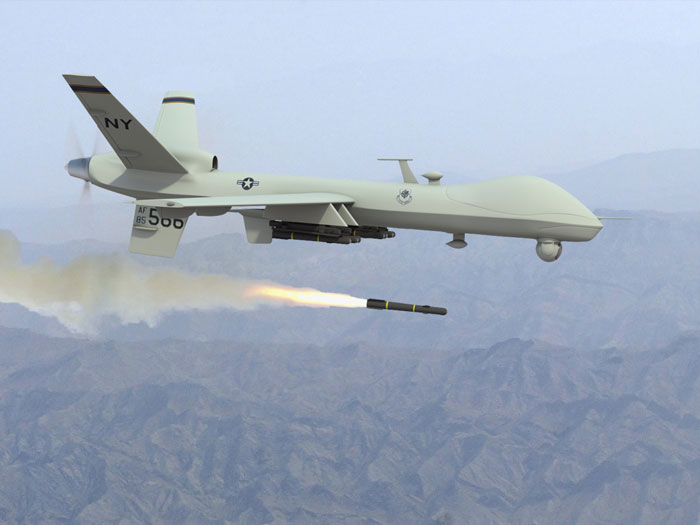This Monday, the Review Committee on the Intelligence and Security Services (CTIVD), a Dutch government agency overseeing the intelligence services, has published a report on the manner in which Dutch Military and Security Service (MIVD) contribute to targeting (the process that can lead to [lethal] uses of force in order to reach a strategic goal in the context of an operation) by sharing information with foreign intelligence services.
The report predominantly looked at targeting practices that can be used for attacks by armed drones. The CTIVD has confirmed what PAX and international human rights organizations supporting the victims of drone attacks have long warned for: metadata gathered by MIVD and shared with foreign intelligence and security agencies can be employed in the extrajudicial use of force by states in third countries with whom they are not at war. The report also says the MIVD lacks a clear risk analysis that could prevent the abuse of shared intelligence.
The CTIVD’s assertions confirm international criticism of the illegal use of drones in areas such as Pakistan, Yemen and Somalia. The gathering of (meta) data plays an important role in carrying out extrajudicial killings with drones, a fact that the revelations from US whistle-blower Edward Snowden made clear. For instance, data the MIVD gathered at a satellite communications interception station in the north of the Netherlands may have led, to a US drone attack in which the children of Somali children were killed. The man is now suing the Dutch government for complicity.
Prevent improper use
Precisely because the Dutch intelligence service and the oversight body cannot rule out that information is inappropriately used, prevention is better than a cure. PAX supports the CTIVD’s call to clearly establish what data can and, conversely, cannot be used for; for personal approval by the Minister of Defence for the sharing of data; and requiring the MIVD to investigate all situations where there is a possibility that data was misused for targeted killings. Moreover, PAX calls for a periodic, independent review of these practices to ensure the recommendations are implemented
More caution in data collection
The CTIVD report is an important step in answering the question about how large-scale data collection and sharing should occur among intelligence services. It is worrying to learn from the report that the MIVD has not taken new developments in data collection and possibilities for abuse into account. Leaked documents by Snowden on the US drone program showed that that meta-data, such as telephone and computer details, SIM cards and computer IP addresses, can be used for extrajudicial executions. The CTIVD report confirms this once again. More caution and responsibility is called for in large-scale collection and sharing of data, including by The Netherlands. The CTIVD underscores that, given the secretive nature of intelligence services, it is nearly impossible to control how data will be used. This gives even more reason to be careful and to set even clearer boundaries with respect to data collection and sharing.
Risks for PAX
In the current proposed Dutch Intelligence and Security Services Act, both the General Intelligence and Security Service (AIVD) and the MIVD will be granted more power to carry-out large-scale (meta)data collection. These data can then also be shared with foreign intelligence agencies. This could potentially have an impact on the work that NGOs, like PAX, are doing. Given, for example, that PAX works in conflict areas, and as a part of this work sometimes is in indirect contact with people and organizations that may be labelled by foreign intelligence agencies as “terrorist” organizations, PAX’networks may be hacked or wiretapped, putting our employees and partner organizations in danger and making the work we do impossible to carry out.
Now that the CTIVD has confirmed that metadata are crucial in the process of targeting, the MIVD is no longer able to hide behind the argument that they are unaware of the ways in which the data shared with the US can be used. The risk that the MIVD will inadvertently contribute to extrajudicial executions and innocent civilian casualties is always present. PAX calls for transparency and responsibility of states in these attacks and recognition and compensation for the victims and families of those who have fallen at the hands of extrajudicial killings.
Read more about the work of PAX on the subject of drones.




